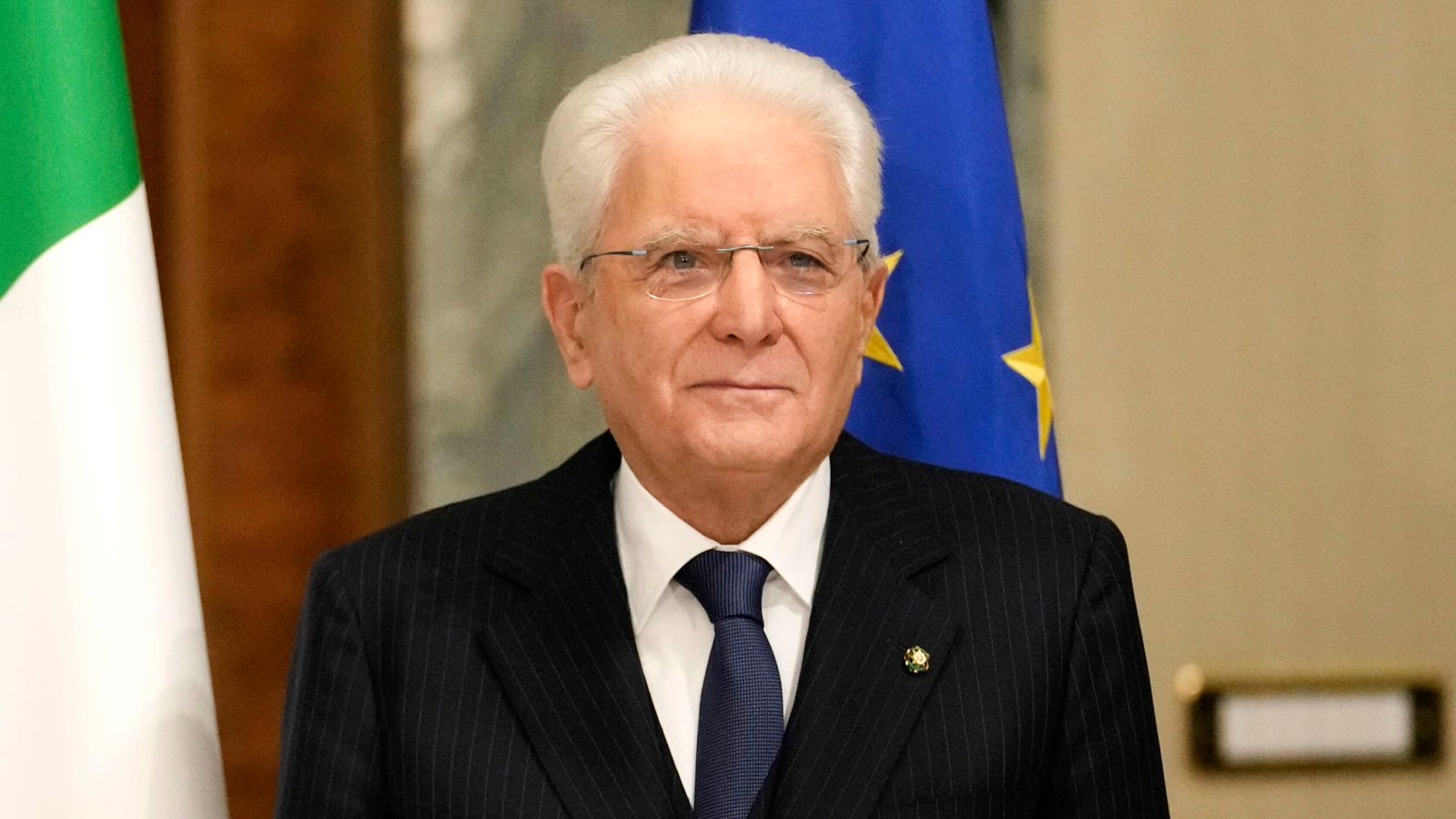Italian President Sergio Mattarella has been re-elected to a second seven-year term that will keep him in the post until he’s 87 – ending days of political deadlock that threatened to destabilise the country.
The 80-year-old had said repeatedly that he did not want a second mandate, but was urged to change his mind after members of parliament and regional delegates failed to agree on other candidates after days of voting.
He was added to the eighth round of balloting and won with 759 votes, passing the threshold of 505 needed.
There are 1,009 “Grand Electors” who can participate.
Mattarella’s ‘sense of responsibility’
In a televised statement from the Quirinal presidential palace, Mr Mattarella told the nation he could not let his personal plans prevail over a “sense of responsibility” during the “grave health, economic and social emergency” caused by the pandemic.
He said he was committed “to interpret the expectations and hopes of our fellow citizens”.
Silvio Berlusconi: Could the controversial leader really become the next Italian president?
COVID-19: Nurse arrested for faking vaccine injections in Italy in exchange for money
Nazi flag placed on coffin at funeral in Italy sparks outrage
In the Italian political system, presidents appoint prime ministers and are often called on to resolve political crises.
Mr Mattarella’s first term ends on Thursday.
‘Splendid news for Italians’
Prime Minister Mario Draghi, who leads a coalition government, was among those who wanted him to stay on and telephoned party leaders to encourage them to change his mind, according to Rai state TV.
Draghi said in a statement that Mr Mattarella’s re-election was “splendid news for Italians”, and thanked him for “his decision to go along with the extremely strong will of parliament”.
He had previously indicated he would be willing to step into the role of president, but some party leaders worried this would prompt an early election and more political instability for Italy.
“You don’t change a winning team,” ex-premier Matteo Renzi told reporters ahead of the penultimate vote.
Former PM Silvio Berlusconi, who leads the centre-right Forza Italia party and dropped his own bid to be president a week ago, said that unity “today can only be found around” the figure of Mr Mattarella.
Giuseppe Conte, another former prime minister, hailed him as “the guarantor of everybody: impartial, authoritative”.
‘Bartering away the presidency’
On the right, while the League and Forza Italia parties eventually embraced Mr Mattarella’s extended tenure, the Brothers of Italy, which has not joined them in government, denounced the lobbying behind the scenes.
Brothers of Italy leader Giorgia Meloni accused her allies of “bartering away” the presidency to make sure the government stays in place until the legislature ends in 2023.
Relations among the governing parties have deteriorated during the election process amid disagreements about who should become president.
Mr Draghi’s coalition includes the main centre-left and centre-right parties, as well as the right-wing League, the once anti-establishment 5-Star movement, and a number of smaller parties.
“The overall political backdrop has become less supportive for Draghi’s government, which is facing a daunting task in the year or so left before the next general election,” said Wolfango Piccoli of political risk consultancy Teneo.






















